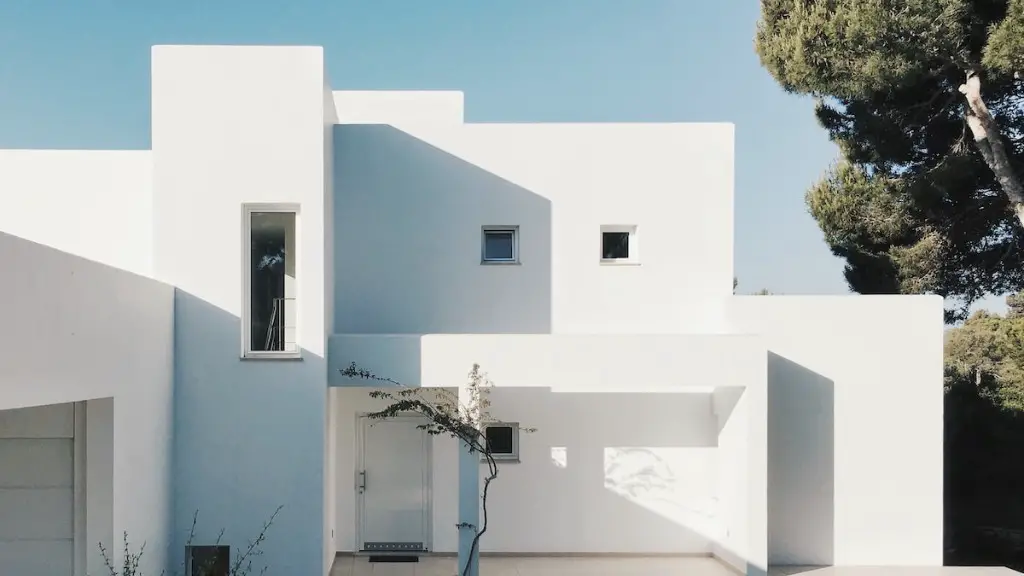What to Expect in an Architecture Interview
When preparing for your architecture interview, it’s important to know what to expect. An interviewer may ask you a range of questions related to your education, experience, design skills and work ethic. Architecture interview questions will typically focus around case studies, design challenges, project management and your approach to problem solving. You may also be asked questions about how you interact with others and how you handle stressful situations.
It’s important to be prepared to answer a variety of questions in an architecture interview. You should be ready to discuss your technical knowledge and design ideas as well as explain how your experience has shaped you as an architect. Most importantly, make sure you are able to talk about any negative or challenging experiences and how you overcame them. This will demonstrate that you can think on your feet and handle tough situations even under pressure.
How to Prepare for an Architecture Interview
Before attending an architecture interview, it’s important to prepare by researching the company and familiarising yourself with their projects. Be prepared to discuss your portfolio and ideas related to their current projects. It’s also a good idea to review common architecture interview questions and practice your answers beforehand.
Researching the industry, design trends and relevant technologies is also key. Assessing current industry trends is a great way to stay ahead of the competition and be able to give more informed answers. Make sure you also do some research on the company you’re interviewing for and read up on their mission statement, values and goals.
Preparing for an architecture interview also includes making sure you create a positive impression. This means dressing appropriately for the occasion, being on time and having a professional demeanour. You may also want to bring in a few key documents such as your resume, portfolio and references to the interview.
How to Answer Architecture Interview Questions
When answering architecture interview questions, it’s important to be honest and open. Be sure to explain your answers in detail and provide concrete examples. Use stories to illustrate your creativity and problem-solving skills. A great way to demonstrate your skill set is by presenting the interviewer with a portfolio of your work. Showing the interviewer your work in an engaging way will make a great impression.
When it comes to answering questions related to design, provide concise answers and be sure to demonstrate your knowledge. Assume the interviewer has no knowledge of architecture, so be sure to explain the details of your work. Above all, try to stay positive and speak confidently.
Tips for Answering Architecture Interview Questions
When answering architecture interview questions, there are a few key tips to keep in mind. First, be sure to control your body language. Keeping your body language open and maintaining a comfortable posture will show the interviewer that you’re relaxed and confident.
Second, make sure you’re prepared to answer questions about your experience and qualifications. You should be aware of the projects you’ve worked on and be able to explain why certain design decisions were made. It’s important to emphasise the value you’ve brought to previous projects and employers.
Finally, make sure you ask thoughtful questions. Asking questions shows that you’re interested in the role and have done your research. It also signals that you’re actively interested in the company, its mission and culture.
Tools and Software Knowledge
Having a solid understanding of the tools and software used in the design and architecture field is essential for success in an architecture interview. Employers often like to see knowledge of the latest software, such as Autodesk’s AutoCAD, Revit and SketchUp. Knowing how to use photo-editing software, such as Adobe Photoshop and Illustrator, is also beneficial.
Having a knowledge of computer-aided design and 3D modelling software can also be beneficial. Being able to use these tools to create and visualise a design is often the difference between good and great designs.
Communication & Teamwork Skills
In any architectural interview, employers will look for signs that you can work within a team. Collaborating with a wide range of people, from clients to contractors, on a project is a key part of architecture. So it’s essential to demonstrate an understanding of communication and teamwork.
Discuss your experience working in a team, whether it was in the workplace or through a school project. Highlight how your teamwork skills contributed to the success of the project. Additionally, make sure you layout the importance of good communication when working on a project. Focus on the ability to listen, understand and resolve conflicts.
Leadership Qualities & Problem-Solving Skills
Leadership qualities in the architecture world are highly sought after. Employers want to know that you’re not only capable of following instructions, but also can take the initiative and take charge. Be prepared to explain how you’ve been in a leadership role in the past and how you’ve effectively managed any challenging situations.
In addition, highlight any problem-solving skills you have. Explain how you’ve gone about solving any complex problems or challenges arising during the design process. Describe how you’ve made design decisions in times of uncertainty and difficulty.
Presentation & Organisational Skills
If you’re interviewing with an architecture firm, it’s important to demonstrate your organisation and presentation skills. Have a portfolio to hand with high-quality images of your best works and be prepared to discuss the projects from start to finish. Earnestly explain what you learned from the experience and how it made you a better architect.
Make sure you explain how you break down complex problems into manageable tasks and how you effectively organise your workload. Describe how you use systems and processes to ensure you don’t miss deadlines or quality control issues. This is key for any architecture job.
Creativity & Adaptability
Creativity and adaptability are essential when it comes to designing complex projects. Employers are looking for architects that can think outside of the box and develop solutions to challenging problems. During the interview, make sure you show off your creative side with examples of projects you’ve undertaken either alone or with a team.
Additionally, explain why you’re the right person for the job. Be sure to demonstrate your understanding of the current industry and trends. Discuss the changes in technology, materials and tools and how you stay up to date with new developments. Show that you’re able to adapt and adjust to different situations with ease.
Work Ethic & Professional Conduct
Every employer wants to hire someone with a reliable work ethic. At an architecture interview, be sure to explain how you maintain a high standard of professional conduct throughout your projects. Highlight any industry qualifications and demonstrate that you’re committed to staying up to date with developments and trends.
Most importantly, be sure to mention any difficulties or negative experiences you’ve encountered in the past and how you overcame them. It’s preferable to be honest about any challenge you encountered and talk about how you solved the problem. This shows that you can think on your feet and have an effective work ethic.


